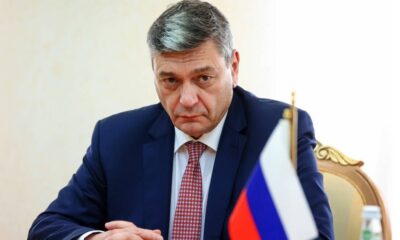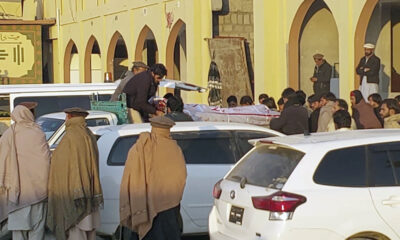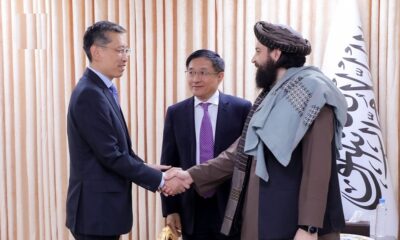Latest News
Afghan families still in need of vital support, one year after Herat earthquakes

Plagued by a severe funding shortfall, the UN Office for the Coordination of Humanitarian Affairs (UNOCHA) has warned that with winter rapidly approaching, the outlook for at least 25,000 Afghan families in Herat is bleak as they still lack adequate shelter a year after deadly earthquakes struck the province.
On October 7, 11 and 15 of last year, massive earthquakes hit the province, leaving over 275,000 people in urgent need of assistance.
The three 6.3 magnitude earthquakes devastated 382 villages, resulted in the death of 1,480 people and injured nearly 2,000 others.
Homes, health centers, schools and essential infrastructure were destroyed in an instant, further exacerbating the vulnerability of communities already grappling with the aftermath of decades of conflict and economic hardship.
While assistance was mobilized quickly, the challenges remain significant as many families continue to struggle in the wake of the earthquakes and have found it hard to recover – both psychologically and materially.
One such family is led by Tahmina, a 25-year-old mother from one of the worst-affected villages in Herat.
The earthquakes claimed the lives of fourteen members of her family, including her parents, siblings and younger relatives. Her children remain traumatized by the events, with one unable to laugh or walk since that tragic day.
Tahmina’s story reflects the difficulties faced by countless other Afghan families who were also affected by the earthquakes.
However, a severe funding shortfall is posing major challenges to the UN Office for the Coordination of Humanitarian Affairs (UNOCHA), which has helped drive the humanitarian assistance process in Herat and across Afghanistan.
In a report published this week, UNOCHA said Afghanistan’s Humanitarian Needs and Response Plan (HNRP) faces a severe funding shortfall, having received only $961.7 million - 31.4 percent of the $3.06 billion required.
This $2.09 billion funding gap threatens essential aid programmes as humanitarian needs remain acute.
The agency also reported that from July to September, widespread flash floods impacted more than 18,900 people across 14 provinces, damaging homes, livestock and agricultural assets, which are vital resources for food security.
“Additionally, since January 2024, cross-border returns have surged, with over 1.1 million Afghans returning from Iran and Pakistan - 243,000 from Pakistan and 825,000 from Iran - adding further strain on limited resources,” the report read.
UNOCHA stated that the critical funding gap of $2.09 billion includes an urgent $1.09 billion shortfall in healthcare, nutrition, sanitation and shelter sectors.
As a result of this shortfall, 3.7 million people have been left without access to primary and secondary healthcare services, while hundreds of thousands of children and pregnant women are missing essential nutritional support.
Emergency shelter and sanitation resources are also lacking, leaving thousands affected by floods and earthquakes without long-term housing solutions, the report read.
In addition, food assistance has been scaled back, excluding entire districts from critical support and increasing the risk of malnutrition.
UNOCHA in turn appealed to donors to provide timely and consistent funding to sustain humanitarian operations and ensure aid reaches those in greatest need.
“Increased international engagement with Afghan authorities could also facilitate access and support the effective delivery of assistance,” the report read, adding that “without prompt action to address the critical funding gap, Afghanistan’s humanitarian crisis will deepen, leaving millions in precarious and increasingly vulnerable conditions.
Latest News
Daesh claims responsibility for Baghlan attack
A provincial police official, said that several people were arrested in connection with the incident, and that an investigation has been launched.

The Islamic State Khorasan (IS-K), also known as Daesh, has claimed responsibility for a gun attack that left 10 people dead at a Sufi shrine in northern Baghlan province.
The interior ministry spokesman Abdul Matin Qani confirmed that a gunman opened fire on Sufis taking part in a weekly ritual at the Sayed Pasha Agha shrine in a remote area of Nahrin district.
Abdul Ghayoor Khadim, a provincial police official, said that several people were arrested in connection with the incident, and that an investigation has been launched.
Latest News
Russia will not ‘artificially impede’ process of removing IEA from list of terrorist groups
Rudenko said let’s act gradually, step by step, but we do not intend to artificially impede the processes
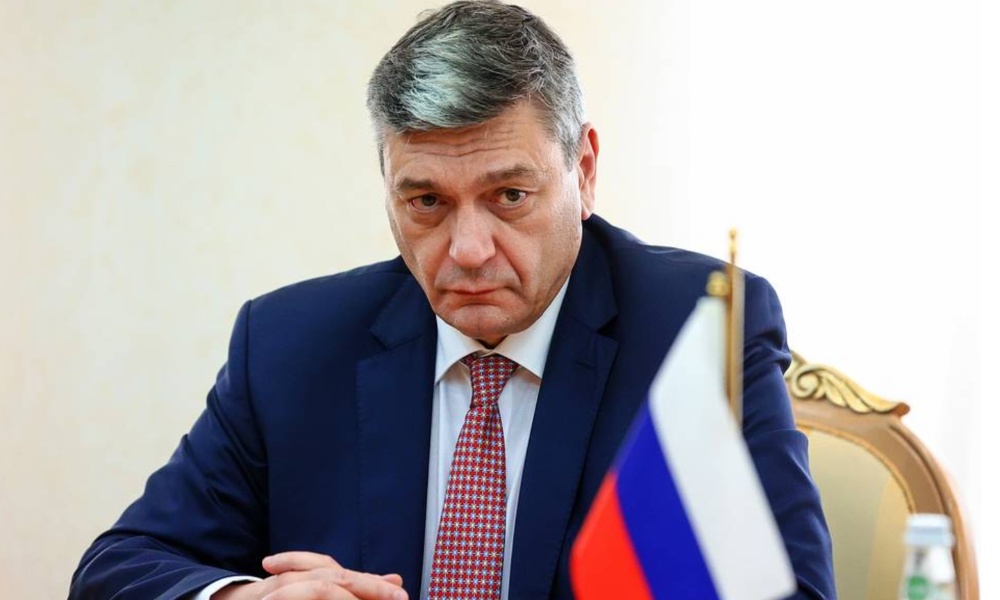
Russian Deputy Foreign Minister Andrey Rudenko said the completion of legal procedures to remove the Islamic Emirate from Moscow’s terrorist list will provide positive impetus to Russian-Afghan relations.
In an interview with Russia’s TASS news agency, Rudenko said “removing the terrorist organization’s status from the Taliban Movement (Islamic Emirate) will attribute a positive impetus to Russian-Afghan interaction in various spheres, in the economy in the first instance."
"As regards the issue of the official recognition of current Afghan authorities, it is early to talk about it thus far. Let’s act gradually, step by step, but we do not intend to artificially impede the processes," Rudenko noted.
"Russia is taking steps of establishing practical interaction with authorities of Afghanistan on issues of mutual interest," the Russian diplomat added.
Early last month, Russia's Foreign Ministry said a decision to remove the Islamic Emirate of Afghanistan (IEA) from a list of terrorist organisations had been "taken at the highest level".
This came after Putin stated in July that Russia considered the IEA an ally in the fight against terrorism.
Russia has been slowly building ties with the Islamic Emirate since it seized power in Afghanistan in August 2021 but the IEA is still officially outlawed in Russia.
In response to Russia’s comments last month, the IEA’s acting foreign minister Amir Khan Muttaqi said the Islamic Emirate “appreciates the positive remarks by the high-ranking officials of the Russian Federation in this regard and hope to see more effective steps soon."
Latest News
China ‘key and partner neighbor’ for people of Afghanistan: Yaqoob Mujahid
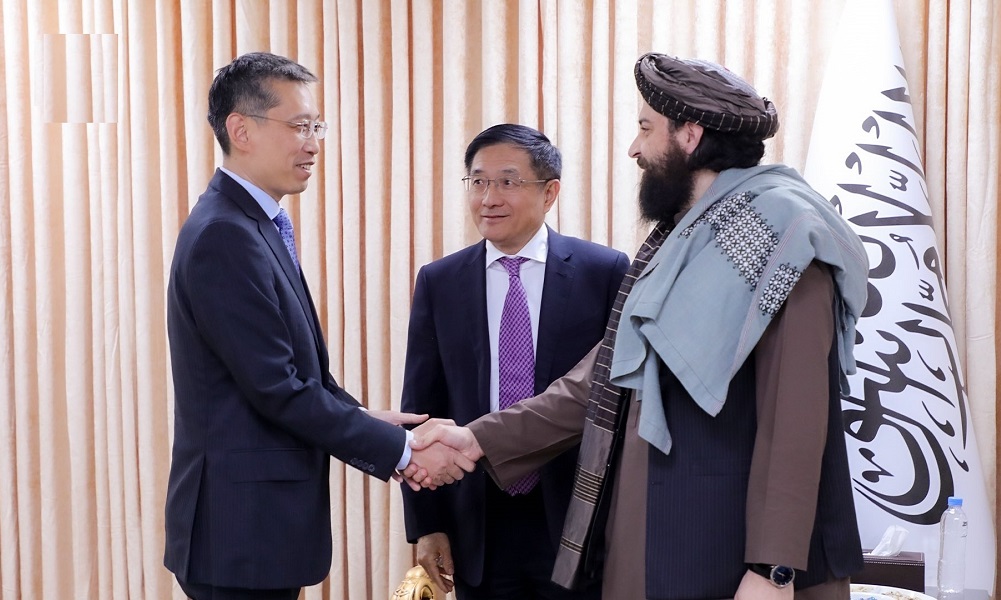
Acting Minister of National Defense Mohammad Yaqoob Mujahid in a meeting with China’s special envoy for Afghanistan Yue Xiaoyong and Zhao Xing, the country's ambassador to Kabul, said that Beijing is a “partner and important neighbor" for the people of Afghanistan, the ministry said a statement.
The statement stated that the two sides discussed economic cooperation, strengthening bilateral relations, borders, investments and other issues.
Yaqoob Mujahid also stressed the commitment of the Ministry of Defense to cooperate in common areas with China.
-

 Latest News5 days ago
Latest News5 days agoTajikistan trumps Afghanistan 3-1 in football friendly
-

 Latest News4 days ago
Latest News4 days agoEU marks International Children’s Day, says it supports Afghan children
-
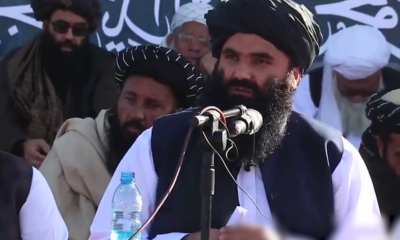
 Latest News5 days ago
Latest News5 days agoAfghanistan wants relations with countries not opposed to Sharia law: Haqqani
-

 Sport3 days ago
Sport3 days agoAriana News to broadcast IPL auction live and exclusively in Afghanistan
-

 Latest News2 days ago
Latest News2 days agoU.S. House approves bill on evacuation of Afghan allies
-
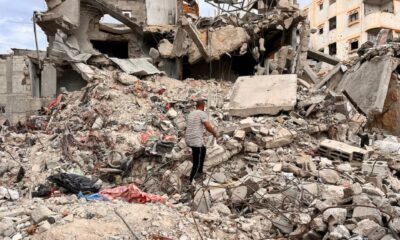
 World3 days ago
World3 days agoUS vetoes UN Security Council resolution on Gaza ceasefire
-

 Latest News5 days ago
Latest News5 days agoIEA implements ‘significant reforms’ in Afghanistan’s education curriculum
-
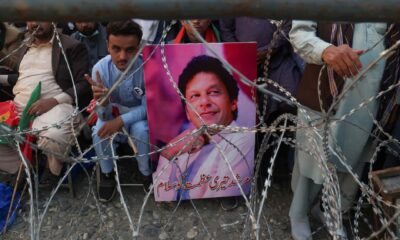
 Regional3 days ago
Regional3 days agoPakistan’s ex-PM Imran Khan gets bail in state gifts case, his party says




